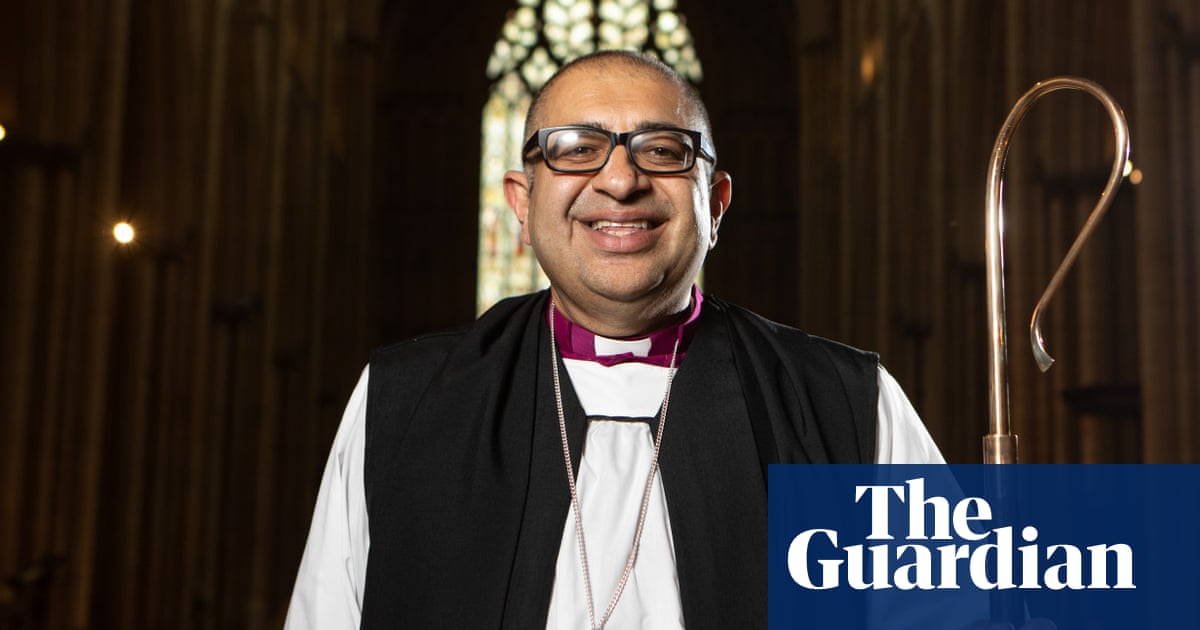The Church of England is susceptible to the influence of “extreme views from abroad and at home”, a bishop has warned after church officials made a “brutal” cut in funding to tackle racism.
There were people in the C of E who were “deeply resistant to any funding for racial justice”, said Arun Arora, the bishop of Kirkstall and joint leader of the church’s racial justice work.
He made his comments after the officials cut funding for racial justice from £26.7m over the past three years to £12m for the next three. The budget was more than halved despite the value of the C of E’s endowment fund rising by 10.3% to £11.1bn last year – the 16th consecutive year of increases.
Arora said: “At a time when the evils of racism are increasingly rising to the surface in our world, there is a danger that extreme views from abroad and at home are starting to leak into the C of E’s decision-making bodies.
“We know there are those who are deeply resistant to any funding for racial justice and who maintain a distinct indifference to such work. Justice is not an ancillary add-on to the work of the church, it is the very work of God.”
The C of E’s latest spending plans, announced this week, include a 11% pay rise for clergy next year and an extra £4.6bn to support parishes and congregations over the next nine years. The church has also allocated £28.2m for the refurbishment of Lambeth Palace, the archbishop of Canterbury’s London headquarters.
Buried in the details of the plans was a 55% cut in funding for work on racial and social justice. Arora and Rosemarie Mallett, the bishop of Croydon and his co-lead on racial justice, were not informed of the cut before it was announced.
The C of E’s move comes amid a crackdown on diversity, equity and inclusion programmes by the Trump administration in the US, and a pledge by Nigel Farage, the leader of Reform UK, to follow suit in councils controlled by his party.
It also comes four months after the C of E’s governing body, the General Synod, called for “crucial resources [to] remain available … to further embed racial justice in the life and practice of the church”. The motion was carried 311 votes to one.
The C of E has sought to tackle racism and discrimination in parishes and national bodies in recent years. Justin Welby, the former archbishop of Canterbury, spoke of hisshame at the church’s “institutional racism”in 2020, and set up the Archbishops’ Commission on Racial Justice.
In a foreword to the commission’s final report earlier this year, Lord Boateng, its chair, said: “Without the racial justice unit being adequately resourced, I am firmly of the view that we will not see the progress which we need.”
Sign up toFirst Edition
Our morning email breaks down the key stories of the day, telling you what’s happening and why it matters
after newsletter promotion
Arora said he and Mallett were “deeply concerned and troubled” by the “brutal” cut in funding. The decision had been taken “without any evaluation on the effectiveness of current work” and was accompanied by a “lack of transparency that will inevitably impact on trust”.
A spokesperson for the C of E said: “In 2023-25 specific funding was made available to provide a short term ‘boost’ and make a significant change in the area of racial and social justice in the church. At the time this was envisaged to be for one [three-year period].”
However, further funding was allocated in the recent spending round in recognition of “the importance of building on the work carried out on racial justice over the last three years”.
